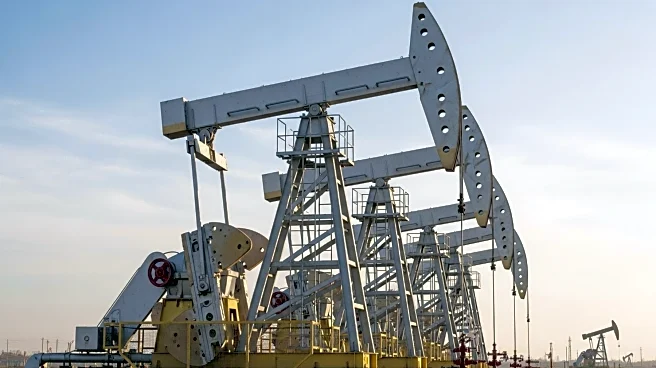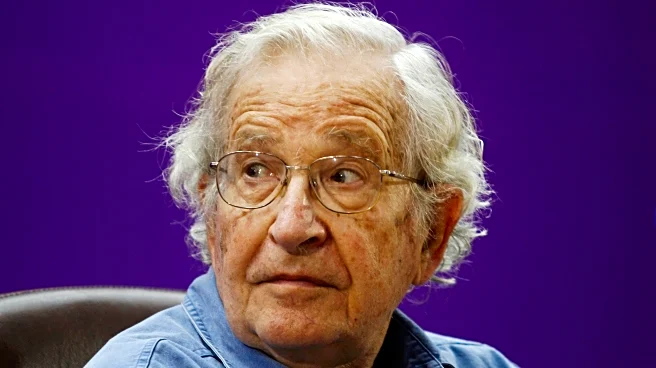What's Happening?
Russia has announced an increase in its oil production, nearing the ceiling set by the OPEC+ agreement. Russian Deputy Prime Minister Alexander Novak stated that production is growing steadily, fulfilling the country's quota. In August, Russia's oil production was approximately 90,000 barrels per day below its OPEC+ quota, averaging 9.173 million barrels per day. For September, Russia is allowed to produce 9.415 million barrels per day under the agreement, including compensation for previous overproduction. Despite the increase, Russia has extended a ban on gasoline exports and introduced a ban on diesel exports by non-producers until the end of the year. These measures come in response to fuel shortages exacerbated by intensified Ukrainian drone attacks on Russian refineries and energy infrastructure. Reports indicate that at least 10 refineries have been targeted, causing damage and temporary halts in crude intake.
Why It's Important?
The increase in oil production by Russia is significant as it aligns with the OPEC+ agreement, impacting global oil supply and prices. The export bans on gasoline and diesel reflect the challenges Russia faces in maintaining energy stability amid external pressures, such as Ukrainian drone attacks. These developments could influence global energy markets, particularly in Europe, which relies on Russian energy exports. The situation underscores the geopolitical tensions affecting energy infrastructure and supply chains, potentially leading to price volatility and supply disruptions. Stakeholders in the energy sector, including businesses and governments, must navigate these complexities to ensure energy security and market stability.
What's Next?
Russia's actions may prompt reactions from other OPEC+ members and global energy stakeholders, as they assess the implications of increased production and export bans. The ongoing conflict with Ukraine and its impact on energy infrastructure could lead to further strategic adjustments by Russia and its partners. Monitoring the situation will be crucial for anticipating shifts in energy policy and market dynamics. Additionally, the international community may seek diplomatic solutions to mitigate the risks associated with energy supply disruptions and geopolitical tensions.
Beyond the Headlines
The extension of export bans and increased production highlight the broader geopolitical and economic challenges facing Russia. The reliance on energy exports as a strategic tool in international relations underscores the complex interplay between domestic policy and global market forces. The situation raises ethical and legal questions about the use of energy infrastructure as a target in conflicts, potentially setting precedents for future engagements. Long-term shifts in energy policy and infrastructure resilience may emerge as countries adapt to these evolving dynamics.










